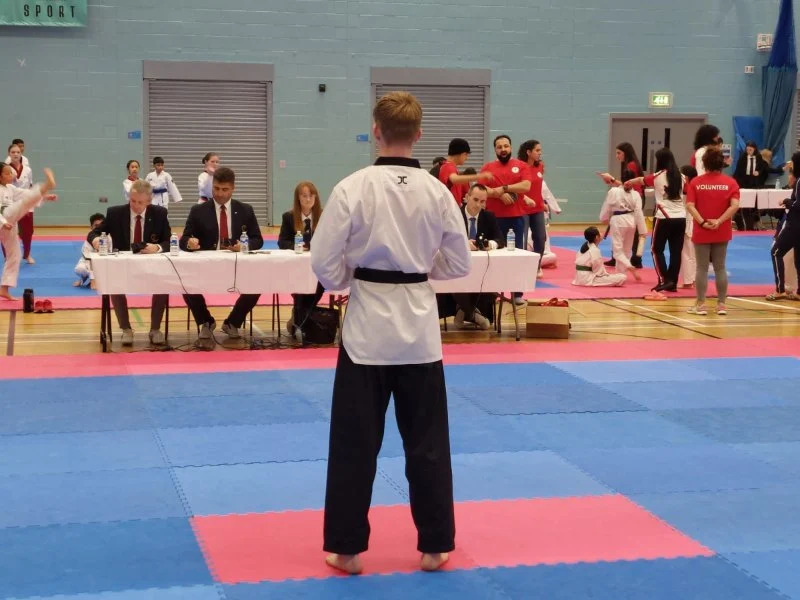
- 1- Understanding Tae Kwon Do Poomsae Competitions
- 2- Key Criteria for Judging Tae Kwon Do Poomsae
- 3- Common Mistakes to Avoid as a Judge
- 4- How to Improve Your Judging Skills
- 5- Tips for Beginner Judges in Tae Kwon Do Competitions
1- Understanding Tae Kwon Do Poomsae Competitions
For many, Tae Kwon Do is more than just a martial art; it’s a way of life. When it comes to competitions, one of the most crucial elements is poomsae, or forms. Poomsae competitions allow practitioners to demonstrate their skills, technique, and precision. These competitions are judged by specific rules and criteria, and understanding these can make all the difference in your ability to effectively judge a competition.
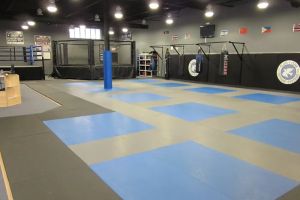
Plus One Defense Systems / plus one defense
West HartfordCapitol Planning RegionConnecticut
9 Tolles St, West Hartford, CT 06110, USA
1.1 What is Poomsae?
Poomsae refers to the patterns or sequences of movements that a martial artist performs, which are essential in showcasing balance, agility, and technique. In competitions, the quality of these movements is critically evaluated, focusing on elements like form, speed, and precision.

Northampton Karate / northampton karate
NorthamptonHampshire CountyMassachusetts
320 Riverside Dr, Florence, MA 01062, USA
1.2 The Role of a Poomsae Judge
As a judge, your role is to assess the performance of competitors based on predetermined criteria. Judges must ensure fairness while evaluating the technique, presentation, and understanding of the poomsae. Their decisions can significantly impact the outcome of the competition.
2- Key Criteria for Judging Tae Kwon Do Poomsae
There are specific criteria that judges look for when evaluating a poomsae performance. Understanding these criteria is essential for any beginner judge looking to be effective in their role. Below are the primary factors that should be considered:
2.1 Accuracy of Movements
Each poomsae consists of a series of movements, and accuracy is key. Judges will assess how closely the performer follows the correct positions and techniques. Missteps or deviations from the pattern can result in a lower score.
2.2 Timing and Rhythm
Poomsae is all about flow. Judges will look for proper timing and rhythm throughout the performance. A smooth, continuous flow indicates proficiency, while awkward pauses or rushed movements may lead to deductions.
2.3 Power and Precision
Power is about the strength and intensity of each movement. However, precision is equally important. Judges are looking for a controlled execution of each action, with no unnecessary force or hesitation. A delicate balance of power and precision is critical in earning high marks.
2.4 Presentation and Stance
The presentation of the poomsae includes the competitor’s stance, posture, and overall control. A strong stance demonstrates confidence and stability, while a weak stance may indicate a lack of control or technique.
3- Common Mistakes to Avoid as a Judge
Even experienced judges can fall into certain traps. As a beginner, it’s important to be aware of common mistakes that can affect your objectivity and accuracy. Here are a few key errors to avoid:
3.1 Allowing Personal Bias
It’s essential to keep any personal biases out of the decision-making process. This means judging based on the performance alone and not being influenced by the competitor's personality or background. Always maintain impartiality.
3.2 Inconsistent Scoring
Inconsistent scoring can undermine the fairness of the competition. It’s important to stay consistent throughout the event, using the same criteria for each competitor. Try to avoid giving higher scores to competitors for one element just because they performed well in other areas.
3.3 Failing to Communicate Effectively
As a judge, clear communication is essential. If you're unsure about a performance, don’t hesitate to ask for clarification. Ensure you understand the rules and criteria and apply them consistently across all performances.
4- How to Improve Your Judging Skills
Improving as a judge requires practice, education, and experience. Here are some tips to help you enhance your judging skills:
4.1 Watch and Analyze Competitions
One of the best ways to improve is by watching and analyzing other competitions. Observe how experienced judges evaluate performances and try to identify their thought process. Pay attention to how they score different elements and how they maintain consistency.
4.2 Seek Feedback
Asking for feedback from other judges or even competitors can help you identify areas for improvement. Constructive criticism is invaluable when it comes to growing your skills as a judge.
4.3 Study the Poomsae Rules
Thorough knowledge of the poomsae rules and guidelines is essential for any judge. Study the official rulebook regularly, and be familiar with all the forms, movements, and criteria. A deeper understanding will improve your ability to make accurate decisions.
5- Tips for Beginner Judges in Tae Kwon Do Competitions
As a beginner judge, there are a few additional tips that can help you navigate your first competitions smoothly:
5.1 Start Small
As you gain experience, start by judging smaller, local competitions. This will help you build confidence and become comfortable with the process before taking on larger events.
5.2 Focus on Objectivity
Ensure that your judging is always objective. Concentrate on the performance itself and avoid any distractions. Evaluate each competitor using the same set of standards.
5.3 Keep Learning
Judging is a skill that improves with time and practice. Always be open to learning from others, attending workshops, and staying updated on new rules or changes in the competition structure.

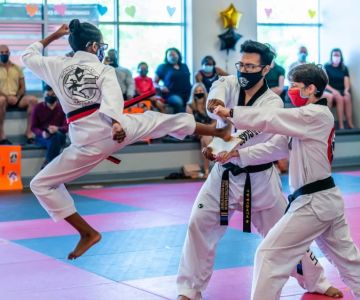
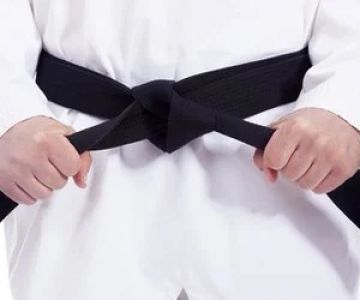

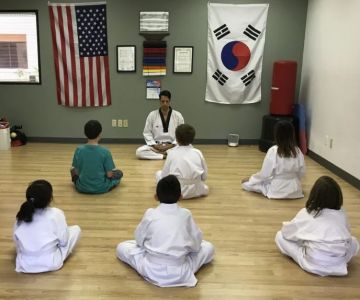
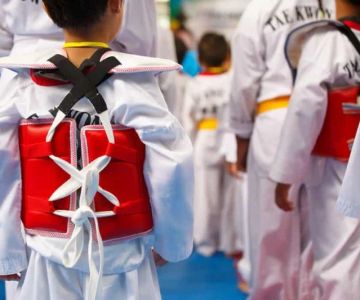
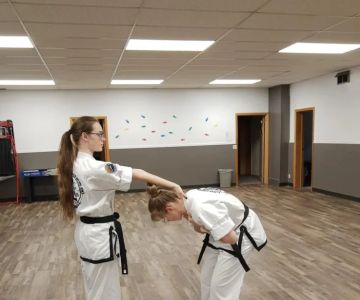
 Fort Walton ATA Martial Arts4.0 (11 reviews)
Fort Walton ATA Martial Arts4.0 (11 reviews)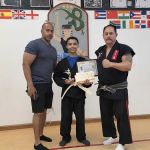 Universal Warrior Mixed Martial Arts4.0 (27 reviews)
Universal Warrior Mixed Martial Arts4.0 (27 reviews) Team Pure Fitness4.0 (27 reviews)
Team Pure Fitness4.0 (27 reviews)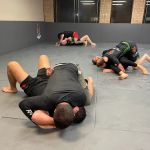 Heart & Dagger BJJ5.0 (112 reviews)
Heart & Dagger BJJ5.0 (112 reviews) Twin Tigers Martial Arts5.0 (38 reviews)
Twin Tigers Martial Arts5.0 (38 reviews) Champions Martial Arts Upper East Side5.0 (51 reviews)
Champions Martial Arts Upper East Side5.0 (51 reviews)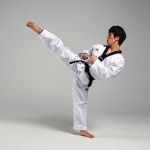 How to Execute a Jumping Roundhouse Kick to the Head
How to Execute a Jumping Roundhouse Kick to the Head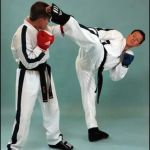 How to Execute a Double Kick Combination in Sparring
How to Execute a Double Kick Combination in Sparring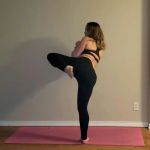 How to Perform a Flawless Axe Kick: A Step-by-Step Guide
How to Perform a Flawless Axe Kick: A Step-by-Step Guide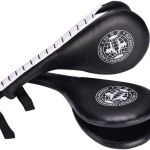 DIY Tae Kwon Do Training Equipment for Home Practice
DIY Tae Kwon Do Training Equipment for Home Practice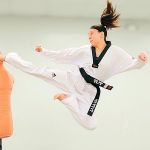 How to Increase Your Vertical Jump for Tae Kwon Do Flying Kicks
How to Increase Your Vertical Jump for Tae Kwon Do Flying Kicks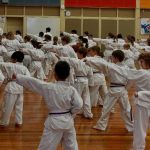 The History of the Tae Kwon Do Peace Corps
The History of the Tae Kwon Do Peace Corps